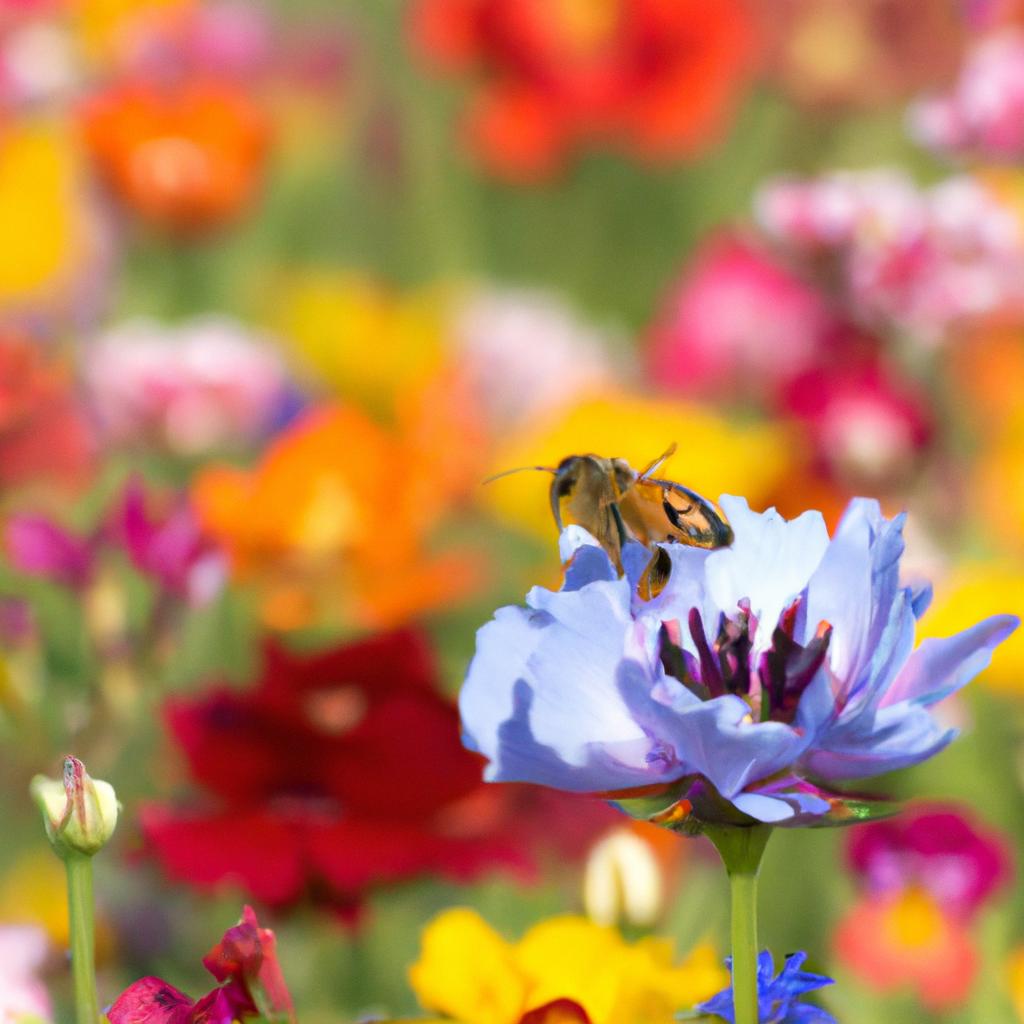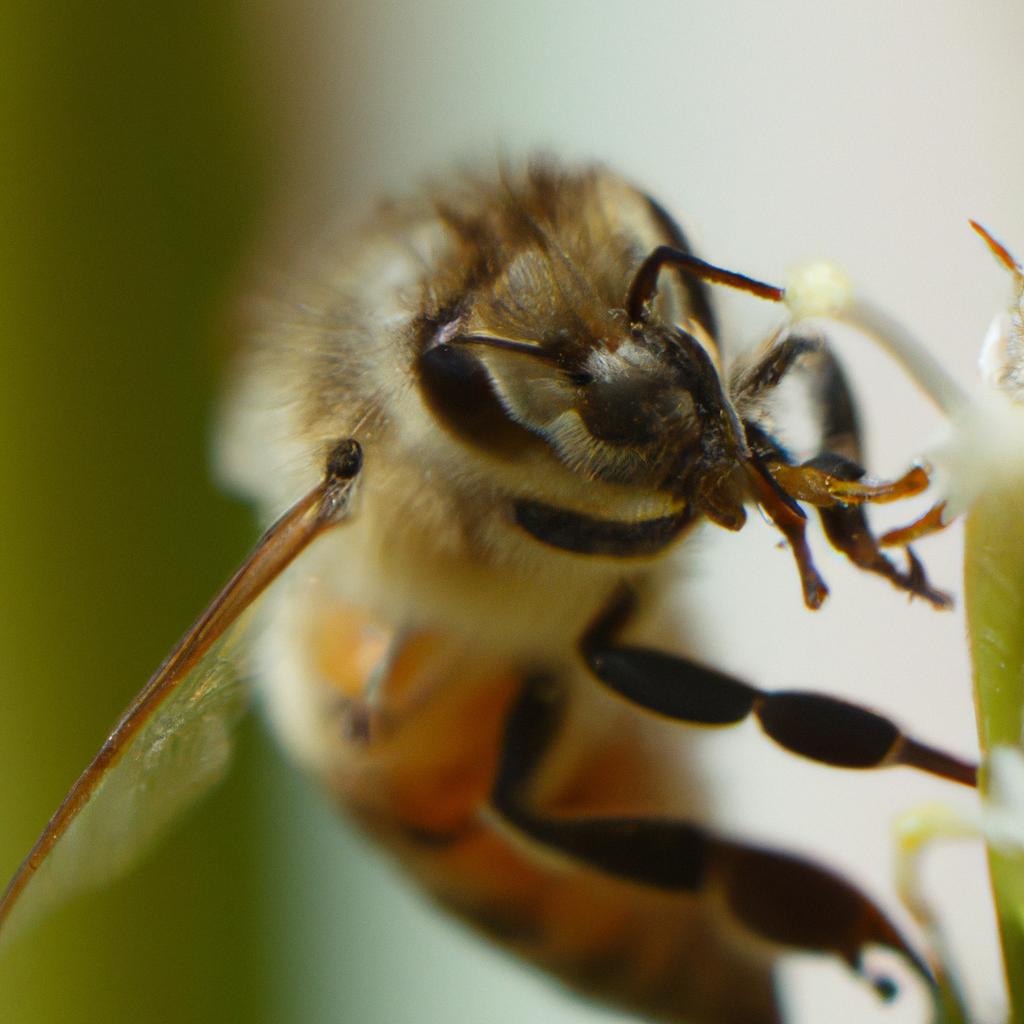Introduction

As pollinators, honey bees play a crucial role in the growth and development of various plants and crops. The survival of a honey bee colony depends on the availability of pollen and nectar from flowers. But have you ever wondered how far a honey bee will travel to collect pollen? In this article, we will explore this question and delve deeper into the fascinating world of honey bees.
The Foraging Behavior of Honey Bees

Honey bees are known for their impressive foraging abilities. Worker bees, which are responsible for collecting pollen and nectar, travel long distances in search of food. According to research, honey bees can travel up to 5 miles (8 kilometers) from their hive to forage for food. However, most bees typically forage within a radius of 2 to 3 miles (3 to 5 kilometers) from their hive.
The distance that a honey bee will travel for pollen depends on various factors such as the availability of food sources, weather conditions, and the size of the hive. If there are not enough food sources within the vicinity of the hive, honey bees will travel further to find food. During the spring and summer months, when flowers are abundant, honey bees may not have to travel as far to find pollen.
The Importance of Pollen to Honey Bees
Pollen is a vital source of protein for honey bees. Bees collect pollen from flowers and use it to feed their young. The protein in pollen is essential for the growth and development of bee larvae. Honey bees also use pollen to produce royal jelly, which is fed to queen bees. Without pollen, honey bee colonies would not survive.
Honey bees are also selective about the type of pollen they collect. They prefer pollen from flowers that are rich in nutrients and have a high protein content. Bees can detect the quality of pollen by its color, smell, and taste. They will also visit multiple flowers to collect different types of pollen, which helps to ensure a diverse and balanced diet for the colony.
Beekeepers play a vital role in ensuring that honey bees have adequate foraging opportunities. They can plant bee-friendly flowers and crops in the vicinity of the hive to provide a reliable food source for honey bees. Beekeepers can also monitor the health of their hives and take steps to prevent diseases and pests that could harm the colony.
In addition, beekeepers can help to reduce the impact of human activities on honey bee populations. Pesticides and other chemicals can be harmful to bees and other pollinators. Beekeepers can work with farmers and landowners to promote safe and sustainable agricultural practices that protect honey bees and their habitats.
By working together, beekeepers and other stakeholders can help to ensure that honey bees have access to the pollen and nectar they need to survive and thrive. In doing so, we can help to protect the health and well-being of these essential pollinators and the ecosystems they support.
How Honey Bees Navigate to Find Pollen Sources
Honey bees have a remarkable ability to navigate and find their way back to the hive, even after traveling long distances in search of food. Bees use a combination of visual cues, such as the position of the sun, and olfactory cues, such as the scent of flowers, to locate pollen sources. Bees also use polarized light to navigate and communicate with each other.
Once bees have found a pollen source, they will communicate its location to other bees in the colony through a complex system of dances and pheromones. This communication helps to ensure that all bees are aware of the location of food sources and can efficiently collect pollen and nectar.
Conclusion
In conclusion, honey bees are fascinating creatures with impressive foraging abilities. They can travel up to 5 miles in search of pollen and nectar, but typically forage within a radius of 2 to 3 miles from the hive. Pollen is essential for the survival of honey bee colonies, providing protein for bee larvae and royal jelly for queen bees.
Beekeepers play a vital role in ensuring that honey bees have access to adequate foraging opportunities. By planting bee-friendly flowers and promoting sustainable agricultural practices, beekeepers can help to protect honey bee populations and the ecosystems they support.
In summary, honey bees are essential pollinators that play a crucial role in the growth and development of various plants and crops. By understanding their foraging behavior and working to protect their habitats, we can help to ensure the survival of these remarkable creatures. As a website dedicated to beekeeping, BeeKeepinglove.com is committed to promoting the health and well-being of honey bees and their ecosystems.
The Benefits of Pollination by Honey Bees
The pollination services provided by honey bees are essential for the growth and development of various plants and crops. Honey bees are responsible for pollinating many of the fruits and vegetables that we eat, including apples, almonds, blueberries, and cucumbers. Without honey bees, these crops would not be able to produce fruit or seeds.
Honey bees are also important for maintaining the biodiversity of ecosystems. They help to pollinate wildflowers and other plants, which provide food and habitat for other wildlife. Honey bees are a keystone species, meaning that they play a critical role in maintaining the balance of ecosystems.
Conclusion
In conclusion, honey bees are remarkable creatures with impressive foraging abilities. They can travel up to 5 miles (8 kilometers) from their hive to forage for pollen and nectar. Pollen is a vital source of protein for honey bees and is essential for the growth and development of bee larvae.
Beekeepers play a vital role in ensuring that honey bees have access to adequate foraging opportunities. By planting bee-friendly flowers and crops and promoting safe and sustainable agricultural practices, we can help to protect honey bees and other pollinators.
The importance of honey bees cannot be overstated. They provide essential pollination services that are vital for the growth and development of various plants and crops. By protecting honey bees and their habitats, we can help to ensure the health and well-being of these essential pollinators and the ecosystems they support.
At BeeKeepinglove.com, we are committed to promoting the health and well-being of honey bees and other pollinators. Join us in our mission to protect these essential creatures and the ecosystems they support.
